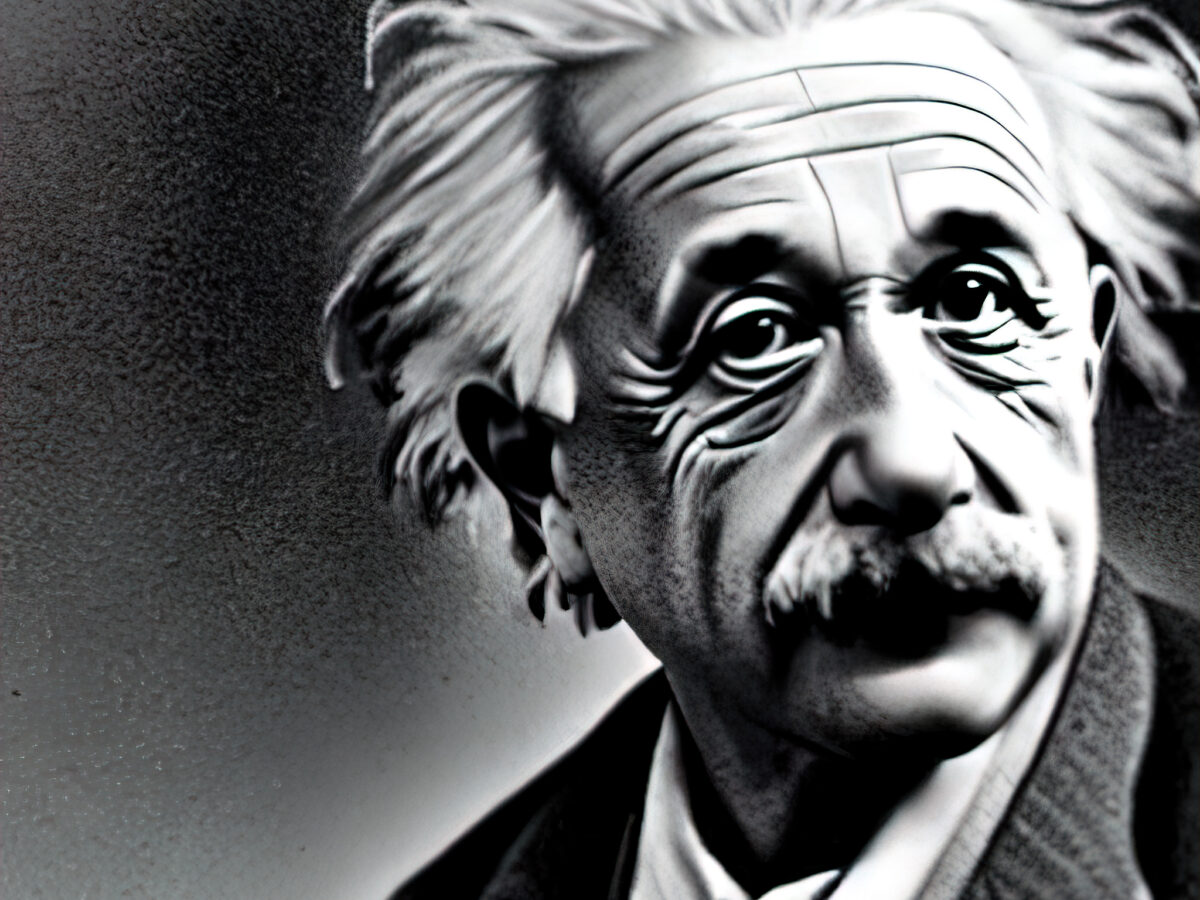Albert Einstein made several important contributions to the development of quantum physics. One of his most famous contributions was his explanation of the photoelectric effect, which demonstrated that light can behave as a particle as well as a wave. This helped to lay the foundation for the development of quantum theory. Einstein also proposed the concept of wave-particle duality, which states that particles such as electrons can exhibit both wave-like and particle-like properties. Additionally, Einstein made significant contributions to the development of the theory of quantum electrodynamics, which describes the interactions between light and matter at the quantum level.
However, it has been difficult to arrive at an interpretation of quantum physical phenomena. One of the main issues is that quantum theory goes against some of our common intuitions about how the physical world works. For example, quantum mechanics states that it is impossible to know both the position and momentum of a particle with precision, which goes against our concept of causality and determinism. Additionally, quantum theory states that reality can be influenced by the observer, which is difficult to accept for those accustomed to thinking that reality exists independently of the observer.
The Copenhagen interpretation of quantum mechanics is a philosophical approach to understanding the principles of quantum theory. It was developed in the 1920s and 1930s by a group of physicists, including Niels Bohr and Werner Heisenberg, who were working on the development of quantum mechanics. According to the Copenhagen interpretation, the behavior of quantum systems is indeterminate and can only be predicted in terms of probability. This means that it is not possible to predict the outcome of an experiment with certainty, but only to assign probabilities to different possible outcomes. The Copenhagen interpretation also states that the act of measurement collapses the wave function, which is a mathematical description of the behavior of a quantum system, and determines the outcome of an experiment.
The principle of superposition in quantum mechanics is a fundamental principle that states that a quantum system can exist in multiple states simultaneously. This means that a quantum system can be in two or more different states at the same time, and the probability of finding the system in a particular state is determined by the sum of the amplitudes of the different states. One way to understand the principle of superposition is to consider a simple example of a particle that can exist in two different states, such as an electron that can be in two different energy levels. According to the principle of superposition, the electron can be in both energy levels at the same time, and the probability of finding the electron in a particular energy level is determined by the sum of the amplitudes of the two states.
The Schrödinger’s paradox is a famous example that illustrates the concept of quantum superposition and some of the strange and seemingly paradoxical implications of quantum mechanics. The paradox was formulated by Erwin Schrödinger in 1935 as a way to demonstrate that the probabilistic interpretation of quantum phenomena was difficult to accept for those accustomed to thinking that reality exists independently of the observer. The Schrödinger’s paradox is based on the idea of a cat that is closed in a box with a radioactive substance. According to quantum theory, the radioactive substance can be in a state of superposition, meaning it can be both radioactive and non-radioactive at the same time. If the radioactive substance disintegrates, the cat will die; otherwise, the cat will survive. According to quantum mechanics, until the box is opened, the cat can be considered both alive and dead at the same time, in a state of superposition. This is why the Schrödinger’s paradox is often used to illustrate the strange and seemingly paradoxical implications of quantum mechanics.
Albert Einstein was not fully satisfied with the probabilistic interpretation of quantum phenomena. He expressed reservations about the concept of quantum uncertainty, which states that some physical phenomena cannot be predicted with precision, and sought an alternative explanation based on the theory of relativity. Albert Einstein worked for many years to find an alternative theory to quantum mechanics that was compatible with the theory of relativity and that could explain some of the strangeness and paradoxes of quantum mechanics. However, despite his efforts, he never managed to find an alternative theory that could satisfactorily explain all quantum phenomena. Einstein proposed several alternative theories to quantum mechanics, such as the theory of probability fields and the theory of fixation fields, but these theories were never able to fully explain quantum phenomena. In addition, Einstein’s theories were refuted by some experiments, while quantum mechanics was confirmed by a series of accurate and precise experiments.
All images and all text in this blog were created by artificial intelligences

